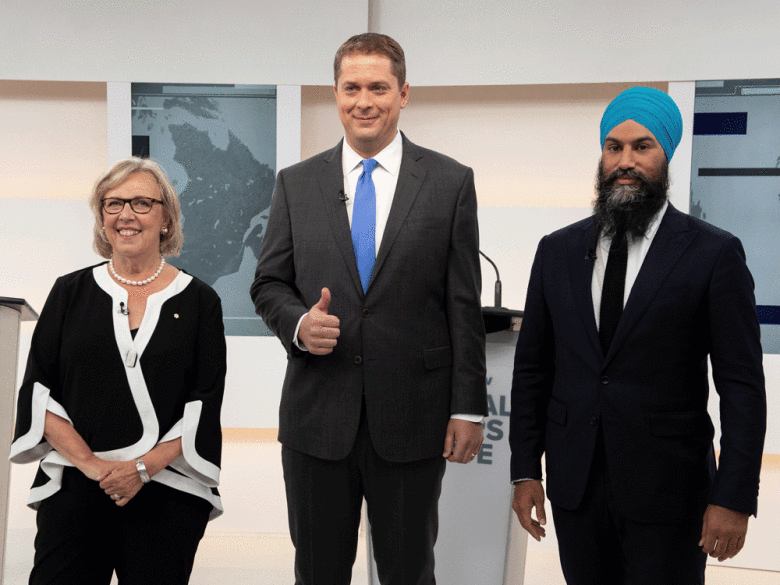“Now with 25 per cent fewer leaders.” That was Maclean’s writer Paul Wells’ very apropos quip to introduce the first leaders’ debate of the 2019 federal election campaign. Despite what Liberal partisans might tell you, Justin Trudeau’s absence is neither justifiable nor a good look.
On Aug. 6, 2015, Stephen Harper, Trudeau, Thomas Mulcair and Elizabeth May faced off in another Maclean’s debate hosted by Wells. They did so as Harper was being accused of undemocratically avoiding such encounters: he turned down the traditional media consortium’s English-language debate, though he did participate in the French-language one. To this day, Liberal henchpersons are happy to excoriate Harper for having tried to “game the system” and avoid scrutiny. Inconveniently for them, it was a “game” that resulted in the three major party leaders debating a record five times.
On Thursday evening, the second Maclean’s debate unfolded much as the first — except that Trudeau was pointedly represented by an empty chair. Thus far he has pledged to skip 40 per cent of the debates on offer — not just Maclean’s but the Munk Debate on foreign policy that debuted in 2015. And his henchpersons are still criticizing Harper for skipping the debate four years ago.
One wonders what Trudeau’s legions of international fans would make of it. Some progressive American comedians might have turned on him, but he is still widely seen as an eloquent, compelling voice for liberal democracy in an age of encroaching darkness. What’s more, he has a compelling record to defend on the economy. He is otherwise eager to cast his Conservative opponent as a leading emissary of the aforementioned darkness at every turn. Why turn down a debate?
Many Canadians probably get it. Conventional political wisdom is to avoid debates when you’re in a comfortable position to win. And of course Trudeau has never actually been particularly eloquent — not if you listen to the words — nor has he ever been a particularly impressive defender of liberal democracy except on Twitter. When let off the leash, and especially when sensing he’s on a roll, he is also capable of utterly extraordinary gaffes that might leave much deeper wounds at this point in his career than earlier on.
One of the Maclean’s topics was “Indigenous issues.” Not only has Trudeau’s government fallen far short of its reconciliation promises; along the way he has managed to argue that what First Nations youth really desire is canoe storage and quip “thank you for your donation” at protesters interrupting a Liberal fundraiser in hopes of acquiring potable water. This is not a man you want front and centre at every opportunity during his second campaign.

An empty lectern stands where Justin Trudeau would have been if he attended the first leaders’ debate on Sept 12.
To your average voter, though, Trudeau’s non-attendance might speak louder than anything he or the other candidates would say had he shown up. Rarely are debates said to turn elections on their ears, and when they are it’s often a bit of a stretch. An empty chair speaks volumes.
Early in the debate, Scheer suggested Trudeau didn’t show up because he’s too chicken to defend his record. May suggested all three could agree on that point, and that they “sing Kumbaya” and keep going. At deadline, all three leaders who showed up were making a pretty good fist defending their cases to replace Trudeau: Singh looked at ease playing the man who could actually deliver the progressive promised land Liberals constantly promise; Scheer looked at ease arguing the promised land costs too much not to screw up the whole endeavour, and May looked at ease splitting the difference.
Skipping this first debate might not hurt Trudeau. But it certainly underscored his biggest weakness as he seeks reelection: His claim to be someone and something totally different lies in ruins. He is as conventional a Canadian politician as there is, except inasmuch as he has delivered even less than usual of what he promised.
His three opponents got a chance to audition to replace him, unopposed, and they did pretty well — not least because they sounded like normal human beings, which Trudeau, with his many thespian affectations, often does not. In the very unlikely event this Liberal campaign goes off the rails, Thursday night might be seen as the first wobble.





























